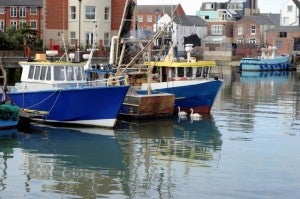 A major milestone for the recovery of European fisheries was passed this week when the European Parliament approved a much-needed reform to the Common Fisheries Policy (CFP) by a great majority (502-to-137).
A major milestone for the recovery of European fisheries was passed this week when the European Parliament approved a much-needed reform to the Common Fisheries Policy (CFP) by a great majority (502-to-137).
The proposed reforms set strong maximum sustainable yield (MSY) targets—the catch level that can be safely taken each year to maintain the fish population size at maximum productivity. The goal of setting these targets is to allow fish stocks to recover by 2020 at the latest, and to maintain all recovered stocks at this level. Fishing vessels will also be required to land all catches; different fisheries will phase in this change over the coming years, bringing to a halt the wasteful practice of discarding fish. The reforms also call for science based decision making as a foundation for long-term fisheries management planning. And member states will be free to use transferable fishing concessions (TFCs)—known in the United States as “catch shares” – to meet the sustainability goals of the reformed policy. With TFCs European fisheries managers will be better able to reduce discards, improve fishing safety and profitability, and enhance compliance.
The vote marks the first time the European Parliament has been involved in the decision-making process for fisheries policy, and they exercised their new co-decision authority with very positive effect. Now the EU enters the next phase of lawmaking, the ‘trilogue’ with the Parliament, Fisheries Council and European Commission; there is new optimism that a fundamental reform will emerge from these three way negotiations.
And with European Commission figures suggesting that 80% of Mediterranean stocks and 47% of Atlantic stocks are overfished, these new reforms come just in time. This historic step is not only the turning point for Europe’s ailing fisheries; it also ties in to the Global Partnership for Oceans (GPO) which aims to make 50% of the world’s fisheries sustainably and economically productive within the next 10 years. In order to get us there, we must build on this momentum by ensuring that the European Fisheries Council , Commission and Parliament work together to keep the new legislation strong.









